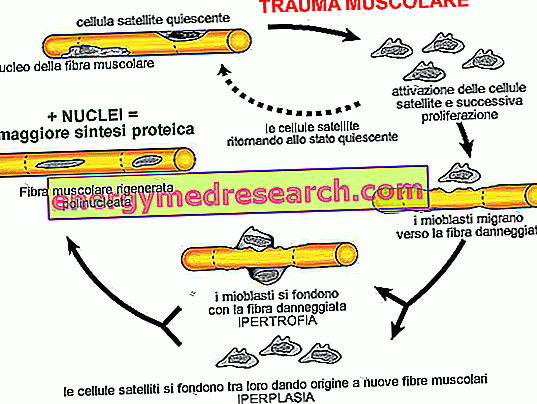
What is Xeloda?
Xeloda is a medicine containing the active substance capecitabine. It is available as peach-colored tablets (150 mg and 500 mg).
What is Xeloda used for?
Xeloda is an anticancer medicine used to treat:
- colon cancer (large intestine). Xeloda is indicated in combination with other anticancer drugs or as a single agent (in patients) undergoing surgery for "stage III" or "stage C Dukes" colon cancer;
- metastatic colorectal cancer (cancer of the large intestine that has spread to other parts of the body). Xeloda is indicated in combination with other anticancer medicines or as monotherapy;
- advanced gastric (stomach) carcinoma. Xeloda is indicated in combination with other anticancer medicines, including a platinum-containing anticancer drug such as cisplatin;
- locally advanced or metastatic breast cancer (breast cancer that has begun to spread to other parts of the body). Xeloda is indicated in combination with docetaxel (another anticancer medicine) after the negative treatment with anthracycline (another type of anticancer medicine). It can also be used in monotherapy in cases where anthracycline and taxane treatments (other types of anticancer drugs) have not worked or in patients in whom further anthracycline therapy is not suitable.
The medicine can only be obtained with a prescription.
How is Xeloda used?
Xeloda should only be prescribed by a doctor who is qualified in the use of anticancer medicines.
Xeloda is given twice a day in doses between 625 and 1 250 mg per square meter of body surface area (calculated using the patient's weight and height). The dose depends on the type of tumor treated. Your doctor will calculate the number of 150 mg and 500 mg tablets that you will need to take. Xeloda tablets should be taken with water within 30 minutes of a meal.
The treatment lasts for six months after colon surgery. For other types of cancer, treatment is suspended if the disease worsens or if the patient does not tolerate treatment. it is necessary to adjust the dosages in patients with diseases affecting the liver or kidneys and in subjects in which certain side effects are observed.
More details are available in the summary of product characteristics (also included with the EPAR).
How does Xeloda work?
The active ingredient in Xeloda, capecitabine, is a cytotoxic medicine (a drug that can kill cells that divide, such as cancer cells) belonging to the group of "antimetabolites". Capecitabine is a "prodrug" that is converted in the body into 5-fluorouracil (5-FU); however it is converted more in tumor cells than in normal tissues. It is taken as tablets, whereas 5-FU should normally be injected.
5-FU is an analogue of pyrimidine. Pyrimidine is a component of the genetic material of cells (DNA and RNA). In the body, 5-FU replaces pyrimidine and interferes with enzymes involved in the production of new DNA. In this way it inhibits the growth of cancer cells and causes their death.
How has Xeloda been studied?
In the treatment of colon cancer, Xeloda monotherapy was compared with the combination of 5-FU and folinic acid (a medicine that improves the effects of 5-FU) in 1 987 patients who had previously undergone surgery for removal of the tumor.
In the treatment of metastatic colorectal cancer, Xeloda monotherapy was compared with the combination of 5-FU and folinic acid in two studies involving 1 207 patients. Xeloda was also compared with the combination of 5-FU and folinic acid, both in combination with oxaliplatin (another anticancer medicine) in two studies: the first was attended by 2 035 patients never treated previously and the second was attended by 627 patients who did not had responded to previous treatment with irinotecan and a fluoropyrimidine (a group of anticancer medicines that include 5-FU).
In advanced stage gastric cancer, Xeloda in combination with cisplatin was compared with a combination of 5-FU and cisplatin in a study involving 316 patients. The company also presented the results of a published study conducted on 1, 002 patients, which compared the effects of Xeloda and 5-FU taken in combination with platinum-containing drugs and epirubicin (another anticancer medicine).
In locally advanced or metastatic breast cancer, Xeloda in combination with docetaxel was compared with docetaxel monotherapy in 511 women. Two smaller studies (238 patients) also examined the efficacy of Xeloda after the failure of taxane and anthracycline therapies.
The main parameters of effectiveness were the number of patients whose cancer responded to treatment, the time required for disease progression, disease-free survival time or duration of overall survival.
What benefit has Xeloda shown during the studies?
In colon cancer, Xeloda was also as effective as 5-FU and folinic acid, with about two-thirds of patients remaining disease-free over the 3.8-year study duration.
In the treatment of metastatic colorectal cancer, Xeloda was as effective as the combination of 5-FU and folinic acid. In monotherapy, between 19% and 25% of patients responded to treatment with Xeloda compared with 12-15% of patients who responded to the combined comparative therapeutic regimen. When Xeloda or 5-FU and folinic acid were taken with oxaliplatin, the worsening of the disease occurred on average after eight months in previously untreated patients and five months in patients whose previous treatment had not worked.
In advanced stage gastric cancer, Xeloda in combination with cisplatin was as effective as 5-FU and cisplatin. In patients treated with Xeloda and cisplatin, there was a period of no progression of the disease of 5.6 months compared to 5 months in subjects treated with 5-FU and cisplatin. The published study showed that patients taking combinations of drugs including Xeloda survived as much as those taking combinations of drugs containing 5-FU.
In locally advanced or metastatic breast cancer, Xeloda in combination with docetaxel was more effective than docetaxel monotherapy in increasing the time it takes to get worse (186 days compared to 128).
What is the risk associated with Xeloda?
The most common side effects related to Xeloda administration (seen in more than 1 patient in 10) are anorexia (loss of appetite), diarrhea, vomiting, nausea, stomatitis (inflammation of the mouth), abdominal pain (belly), palm erythrodysaesthesia -plant ("hand-foot syndrome", a skin reaction characterized by redness and pain in the hands and feet), fatigue and asthenia (weakness). For the full list of all side effects reported with Xeloda, see the Package Leaflet.
Xeloda should not be used in people who may be hypersensitive (allergic) to capecitabine, to any of the other ingredients or to fluorouracil. Xeloda must also not be used in the following groups:
- patients who had severe and unexpected reactions to fluoropyrimidine therapy (a group of anticancer drugs);
- in patients with dihydropyrimidine dehydrogenase deficiency (low levels of an enzyme);
- in pregnant or breast-feeding women;
- in patients with severe forms of leukopenia, neutropenia or thrombocytopenia (low levels of white blood cells or platelets in the blood);
- in patients suffering from severe liver or kidney disease;
- in patients treated in the last four weeks with sorivudine or similar anticancer drugs, such as brivudine.
Why has Xeloda been approved?
The Committee for Medicinal Products for Human Use (CHMP) has decided that Xeloda's benefits are greater than its risks for:
- adjuvant therapy in patients undergoing surgery for stage III colon cancer (Dukes stage C);
- metastatic colorectal cancer treatment;
- for the first-line treatment of advanced stage gastric cancer in association with a platinum-containing regimen;
- the treatment of patients with locally advanced or metastatic breast cancer in association with docetaxel after failure of an anthracycline chemotherapy or, in monotherapy, after failure of both chemotherapeutic regimens containing an anthracycline and taxanes or in patients for whom it is not indicated further anthracycline therapy.
The Committee therefore recommended that Xeloda be given marketing authorization.
More information on Xeloda:
On 2 February 2001, the European Commission granted Xeloda, valid throughout the European Union, a marketing authorization to Roche Registration Limited. The marketing authorization was renewed on 2 February 2006.
For the full EPAR for Xeloda click here.
Last update of this summary: 11-2008



